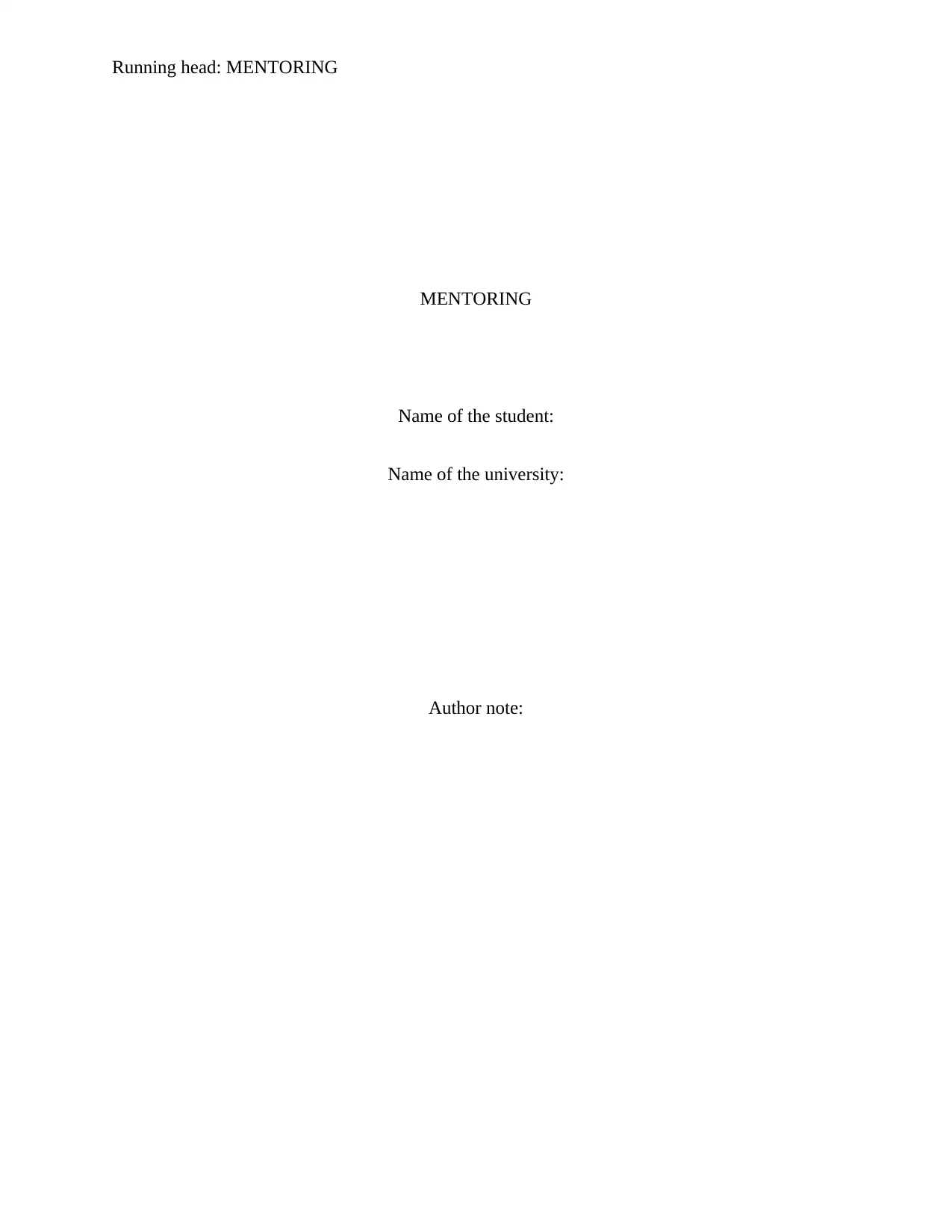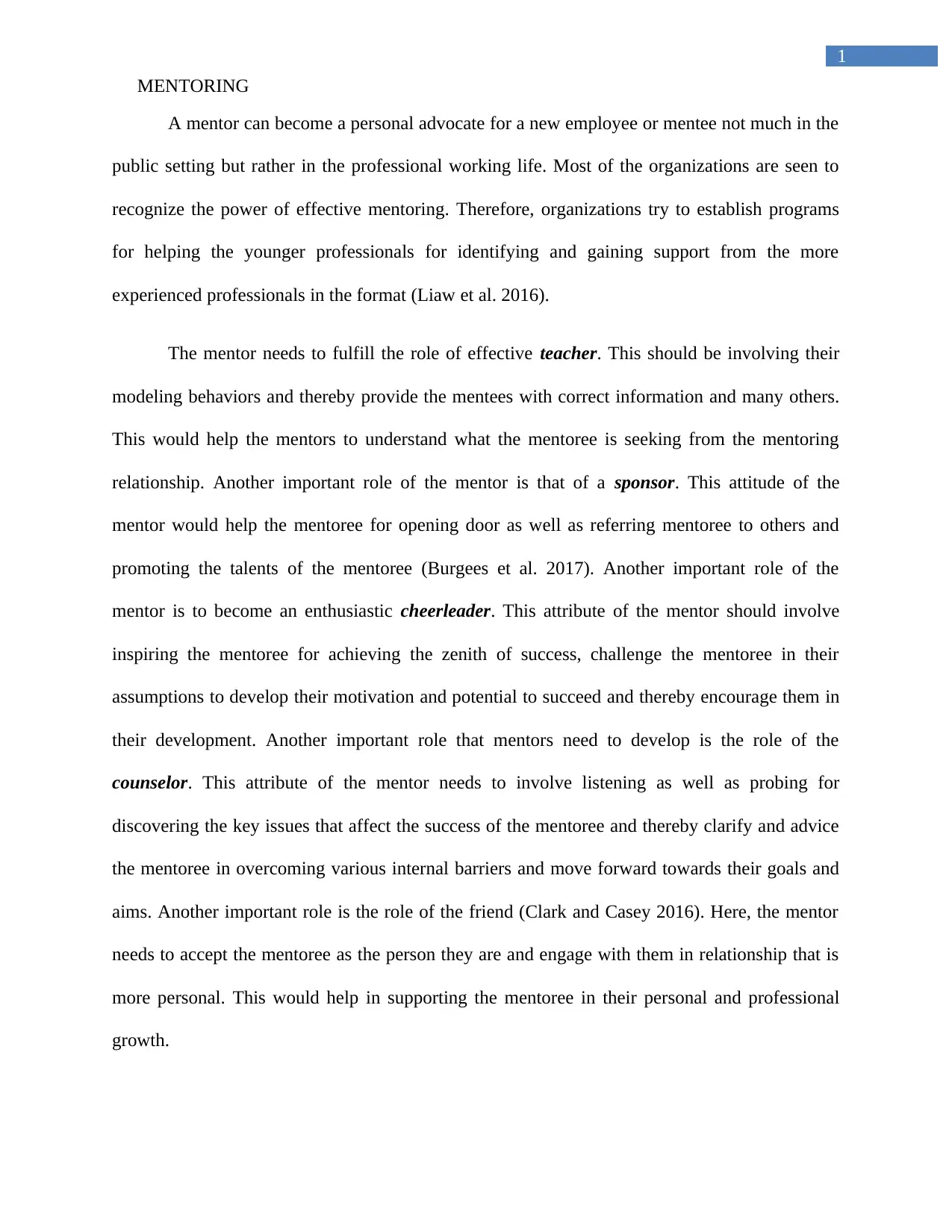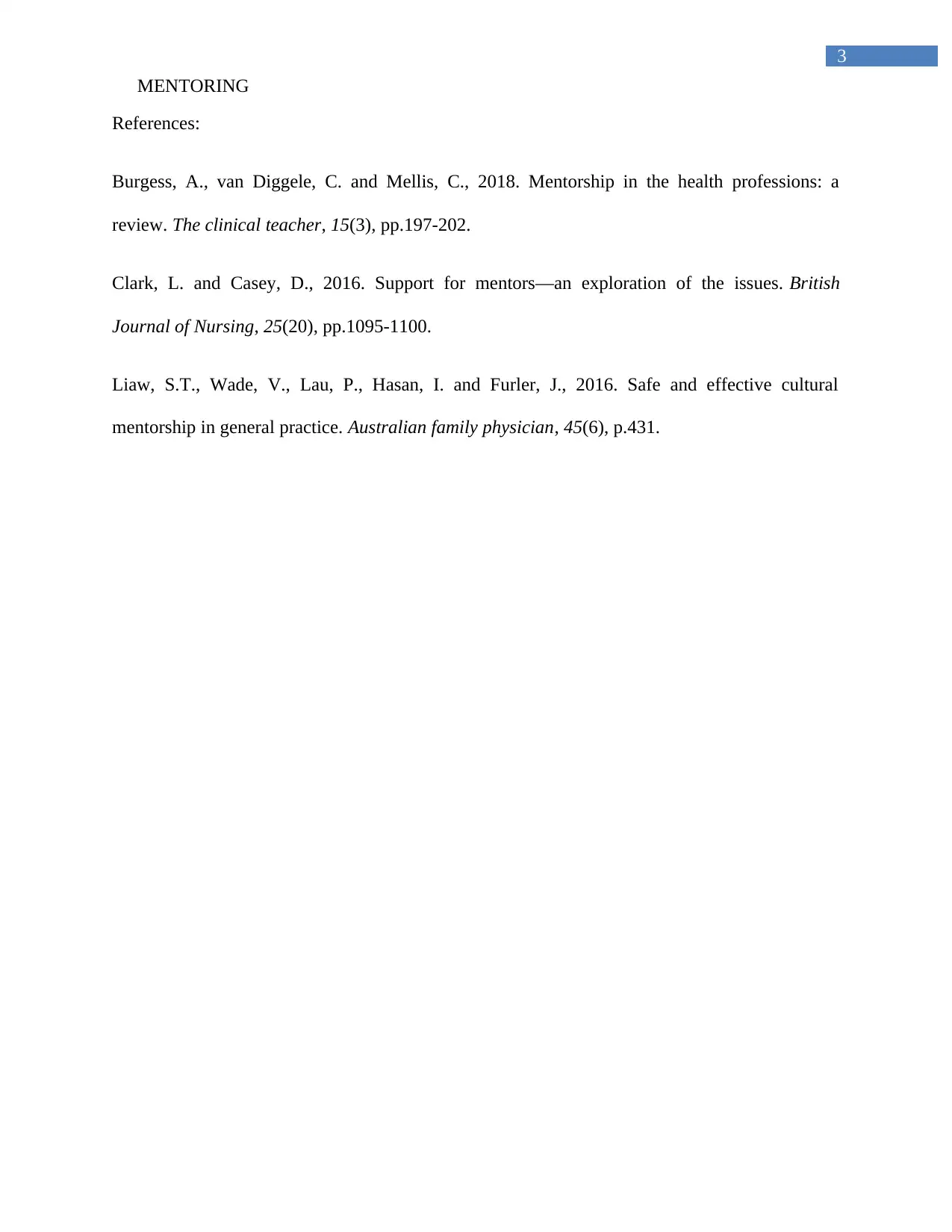Examining effective mentorship: Roles and skills for success
VerifiedAdded on 2023/04/20
|4
|494
|163
Essay
AI Summary
This essay explores the multifaceted roles of a mentor in guiding and supporting new employees within an organization. It highlights the importance of effective mentoring programs and emphasizes the various roles a mentor must fulfill, including being a teacher, sponsor, cheerleader, counselor, and friend. Each role requires specific skills and attitudes to help the mentoree overcome challenges, develop their potential, and achieve their professional goals. By understanding and embracing these roles, a mentor can significantly contribute to the mentoree's personal and professional growth, ultimately fostering a successful mentoring relationship.
1 out of 4











![[object Object]](/_next/static/media/star-bottom.7253800d.svg)